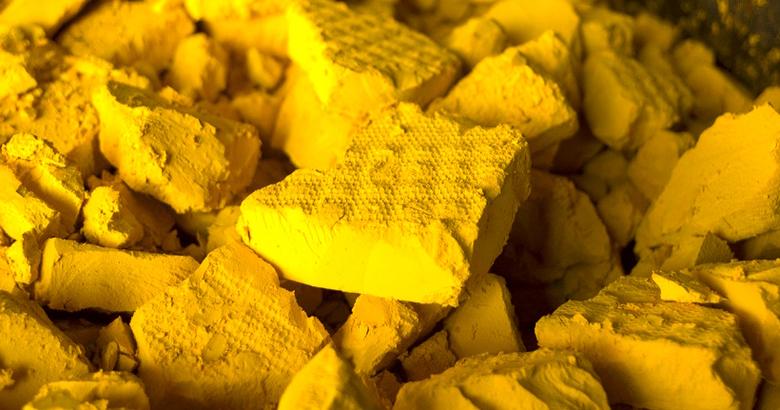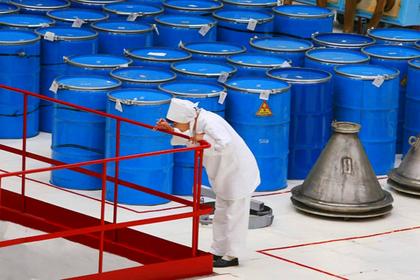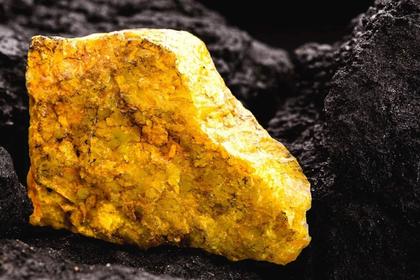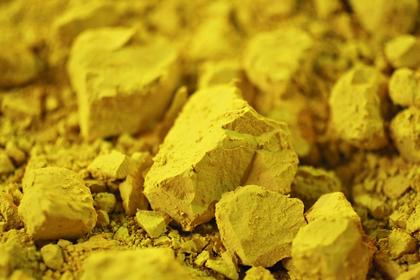
RUSSIAN URANIUM: ALLOW NOT PROHIBITED

By KENNEDY MAIZE Editor and Publisher, The Quad Report
ENERGYCENTRAL - May 24, 2024 - The U.S. Department of Energy this week issued rules to implement the Biden administration’s new pseudo-ban on Russian enriched uranium nuclear fuel. DOE outlines how users can take advantage of the four-year delay built into the legislation that Congress passed earlier this month. The ban itself extends to 2040.
Biden signed the bipartisan legislation May 13. It contains a 90-day window of opportunity to apply for the built-in delay. Russia is the largest supplier of low-enriched uranium in the world and about a quarter of enriched uranium used in U.S. reactors comes from Russia. The legislation won in part because of anger at the Russian invasion of Ukraine, without endangering U.S. nuclear electricity production.
The law also provides $2.7 billion to fund existing law aimed at building up U.S. capacity to enrich nuclear fuel.
The legislation defines two categories of Russian reactor fuel that are banned. One is unirradiated low-enriched uranium produced in Russia “or by a ‘Russian Entity.’ The other bans LEU from fuel “exchanged with, swapped for, or otherwise obtained in lieu of unirradiated LEU produced in the Russian Federation or by a Russian Entity in a manner designed to circumvent” the law. Russia in the past has avoided such bans through “flag-swapping” to disguise the origin.
DOE, along with the Commerce and State departments, can grant the waivers for up to January 1, 2028 if the energy secretary finds “no alternative viable source of [LEU] is available to sustain the continued operation of a nuclear reactor or a United States nuclear energy company,” or if the importation “is in the national interest.”
The sum total of the waivers is limited by a declining amount each year: 476,536 kilograms for calendar year 2024; 470,376 kg for 2025; 464,183 kg for 2026; and 459,083 kg for 2027. The Commerce Department will police these limits.
DOE’s notice observes that the new law “does not define what constitutes an alternative viable source. DOE notes that planning for a reactor refueling involves long lead times and a need for certainty concerning the availability of the fuel to support the refueling. Thus, an alternative source needs to be identified and secured many months prior to a scheduled refueling. This timing issue is necessarily a significant factor in determining whether an alternative source is available.”
Also, the energy agency wrote, “DOE does not interpret viable to mean that the terms and conditions, including price, of an alternative source must be the same as the prohibited Russian import but rather that the terms and conditions must be reasonable in the context of overall market conditions.”
DO also says it “does not consider the American Assured Fuel Supply (AAFS) as an alternative viable source for purposes of determining whether to grant a waiver. Thus, an application to purchase material from the AAFS is not a prerequisite to apply for a waiver…. These two processes are separate and distinct.”
AAFS, created in 2011, is a nuclear fuel equivalent to the agency’s Strategic Petroleum Reserve. DOE defines it as “a reserve of low enriched uranium (LEU) to serve as a backup fuel supply for foreign recipients to be supplied through U.S. persons, or for domestic recipients, in the event of a fuel supply disruption. DOE is committed to making the AFS available to eligible recipients in the case of supply disruptions in the nuclear fuel market. This effort supports DOE’s nuclear nonproliferation objectives by supporting civil nuclear energy development while minimizing proliferation risks.”
Bloomberg reported last week that Russian uranium supplier Tenex has notified its customers that they have 60 days to get their waiver requests to DOE. The “force majeure” letter went to Constellation Energy, Duke Energy, and Dominion Energy. Constellation owns the largest nuclear power fleet in the U.S. Tenex warned that utilities that don’t get a waiver within 60 days “could lose their place in line for reactor fuel shipments that can take three to four months to complete.”
According to Bloomberg, “Tenex, which is owned by Russian nuclear corporation Rosatom, has said it intends honor all their contractual commitments in the US, but it has no control over what action the Kremlin might take.
“Analysts have said it’s possible Russia responds by preemptively halting reactor fuel shipments to the US prior to the waiver period expiring in 2028. Such a move could cause the spot price of enrichment services to jump by as much as about 20%, according to nuclear fuel market research firm UxC.”
-----
This thought leadership article was originally shared with Energy Central's Utility Management Community Group. The communities are a place where professionals in the power industry can share, learn and connect in a collaborative environment. Join the Utility Management Community today and learn from others who work in the industry.
-----
Earlier:



















